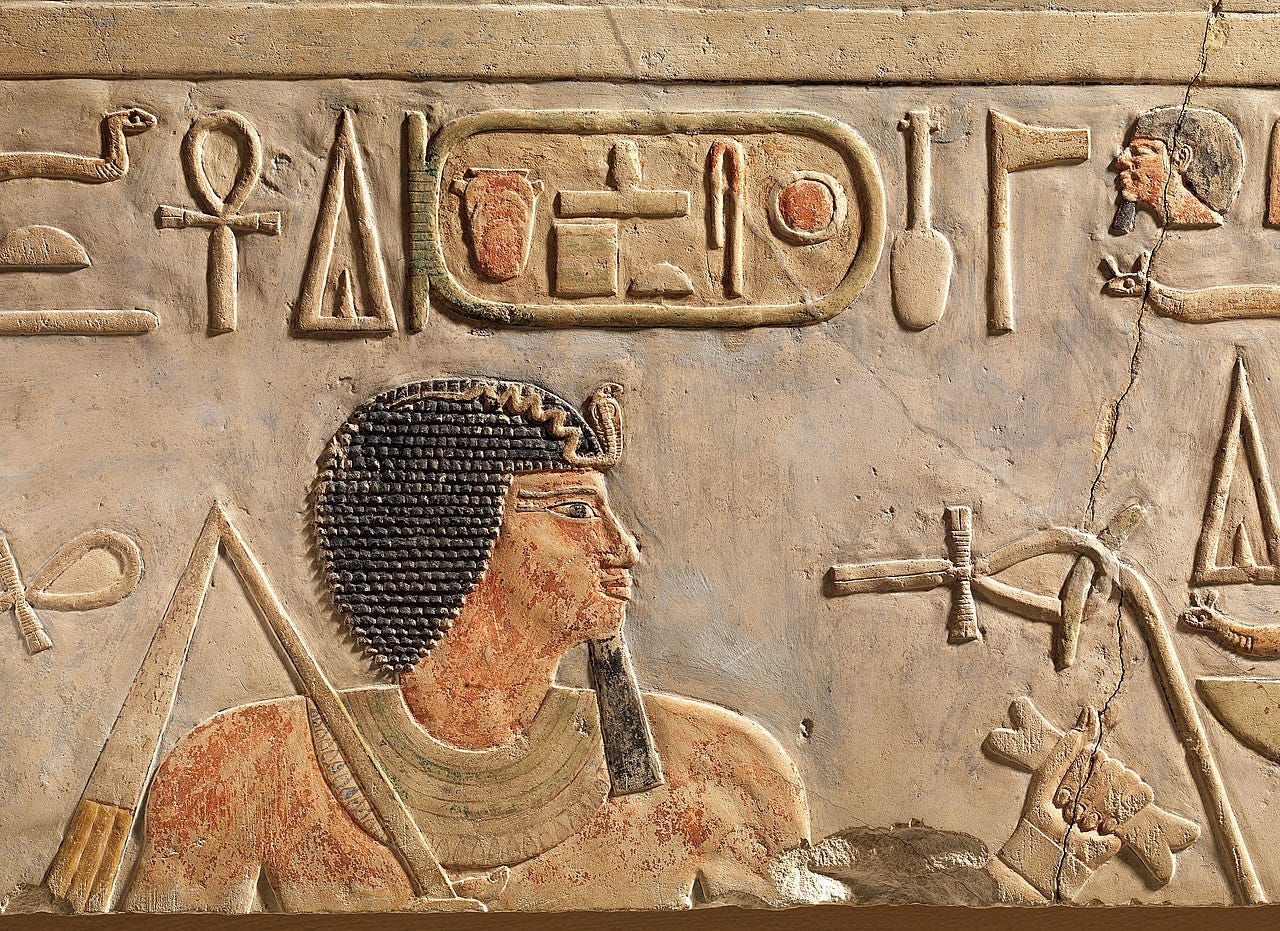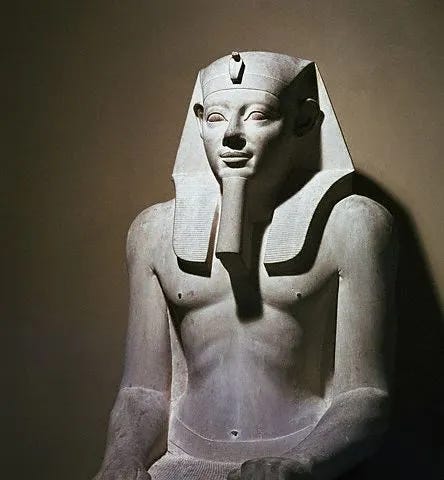In the previous post, we left Joseph languishing in the political prison of Amenemhat I, the first Pharaoh of Dynasty 12. Was his life at its end? Though it may have looked that way, Joseph’s life was about to take a dramatic turn for the better.
Amenemhat I had reorganized the government of Egypt, creating a new high kingship and a new cabinet-level Dynasty 13 in his new capital of Itj-tawy. The new arrangement worked to the disadvantage of the old city dynasties, Dynasty 5 in Memphis and Dynasty 10 in Heracleopolis. Thus, Amenemhat had made some very powerful enemies.
Scripture tells us that Joseph’s master, Potiphar, was the captain of the king’s guard (Genesis 37:36). About 20 years into his 30-year reign, Amenemhat suffered a failed assassination attempt by his bodyguard, who attacked him in his bedroom. He gives a detailed account of this in a work called the “Instructions of Amenemhat” that he left to his son, Senusret I.
In the introduction, we learn that the chief conspirator was a man who ate at the King’s table.
When you lie down at night, let your own heart be watchful over you, For no man has any to defend him on the day of anguish.
I was generous to the pauper, I sustained the orphan,
I caused him who had nothing to become at length like a man of means. But it was one who ate my bread who conspired (against me),
One to whom I had given my support devised dread deeds thereby, Those clad in my fine linen behaved toward me like worthless louts, And those anointed with my myrrh made my way slippery before me.
Then the king tells us that he became very drowsy after supper.
It was after supper, when darkness had fallen,
And I had decided to take an hour of relaxation;
I was lying on my bed, for I was tired,
And I started / to drift off to sleep.
It was then that the conspirators attacked, while he was asleep and dreaming, “like a snake in the desert”!
Weapons (intended for) my protection were raised against me,
While I acted like a snake of the desert.
I woke up to the fighting, pulled myself together,
And found that it was a skirmish of the palace guard.
The fact that the palace guard was skirmishing means that at last one of the king’s bodyguards was loyal and tried to fight off the conspirators. However, he was overcome, and the king was sorely wounded. The conspirators left him for dead, but to their chagrin, he survived.
Why the Baker and Butler Were in Prison
The failed assassination attempt led the King to place his son, Senusret I, on the throne with him as high king over all of Egypt. It appears that Senusret began an investigation of the conspirators that took at least a year.
While the main conspirators were obviously the palace guard, the other household staff would have been interrogated as well to see what they knew.
Since the king had become very drowsy after supper, the investigators may have suspected that the baker or butler, who handled the king’s food, may have slipped a sedative into his food. Thus, the baker and butler found themselves in prison with Joseph awaiting their trials in the year 1718 BC.
It came to pass after these things that the butler and the baker of the king of Egypt offended their lord, the king of Egypt. And Pharaoh was angry with his two officers, the chief butler and the chief baker. So he put them in custody in the house of the captain of the guard, in the prison, the place where Joseph was confined. And the captain of the guard charged Joseph with them, and he served them; so they were in custody for a while.
The butler and baker both had dreams of their fates, which Joseph correctly interpreted for them. Scripture relates that the butler was exonerated, but the baker was found guilty and executed. The baker had promised to speak of Joseph to the King, but he forgot about it for two years.
In 1716 BC, Senusret I started having a recurring dream of the seven fat cows being eaten by the seven skinny cattle.




